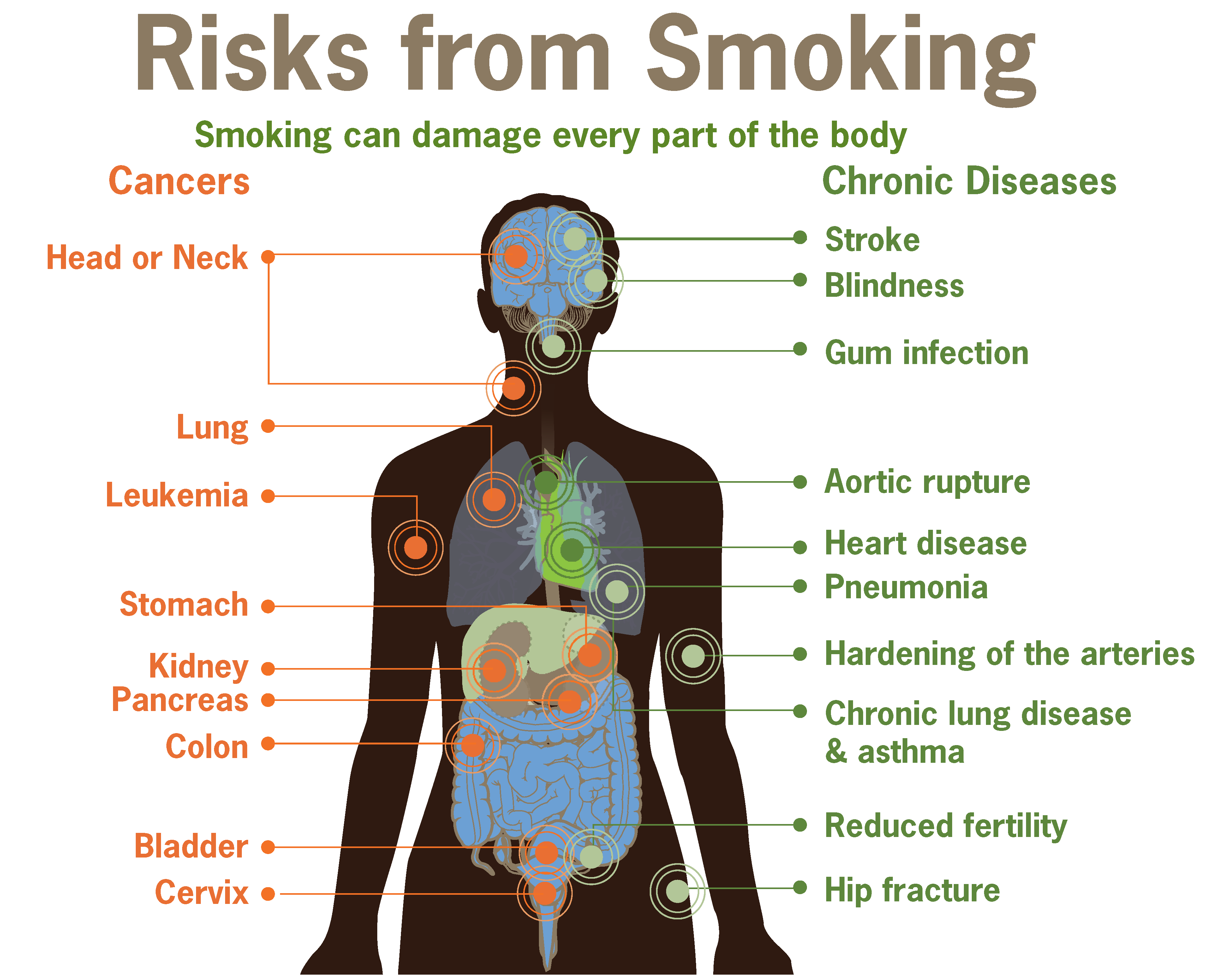Tobacco use can have serious negative effects on your health. Here are some of the ways tobacco damages health:
- Cancer: Tobacco use is the leading cause of preventable cancer worldwide. It can cause cancer of the lungs, mouth, throat, esophagus, pancreas, kidney, bladder, and cervix.
- Respiratory problems: Smoking damages the lungs and can lead to chronic bronchitis, emphysema, and other respiratory diseases. It can also worsen asthma symptoms.
- Cardiovascular disease: Smoking can increase the risk of heart disease, stroke, and other cardiovascular diseases. It can cause atherosclerosis (hardening and narrowing of the arteries) and raise blood pressure.

- Oral health: Tobacco use can cause gum disease, tooth loss, and oral cancer.
- Pregnancy and fertility: Smoking during pregnancy can harm the developing fetus and increase the risk of premature birth, low birth weight, and sudden infant death syndrome. Smoking can also affect fertility in both men and women.
- Immune system: Smoking can weaken the immune system, making it harder for the body to fight infections.
- Vision problems: Smoking can increase the risk of cataracts and age-related macular degeneration, which can lead to blindness.
Overall, tobacco use is a major cause of preventable illness and death worldwide. Quitting smoking or using tobacco products can significantly improve your health and reduce your risk of developing these health problems .
.
Quitting tobacco use can have many benefits for your health. One of the most significant benefits is a reduced risk of developing smoking-related illnesses such as cancer, respiratory diseases, cardiovascular disease, and oral health problems. Quitting smoking can also improve your overall quality of life by increasing your energy levels, reducing stress and anxiety, improving your sense of taste and smell, and helping you breathe more easily. You may also save money by quitting tobacco use, as smoking and other forms of tobacco can be expensive. Additionally, quitting smoking can have a positive impact on those around you, as secondhand smoke can also cause health problems for those who are exposed to it. Overall, quitting tobacco use is a powerful step towards improving your health and well-being.



